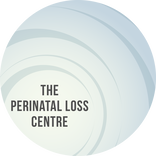The Perinatal Loss Centre
WHEN BABIES DIE
Most obstetricians and midwives enjoy supporting women to birth their live babies. Sadly, 1 in 100 births result in stillbirth or newborn death (where a baby lives following birth but dies within the first month of life). Miscarriage has an even higher rate of 25 per 100 pregnancies ending in the loss of a baby (AIHW, 2018). Perinatal loss is a tragic reality.
The way in which patients and their families are treated when their baby dies, has far reaching effects on the ongoing mental health of bereaved parents. Inadequate care might exacerbate an already difficult grief (Henley & Schott, 2008; Leon, 2008; Lisy et al., 2016) hindering the parents' process of healing (Gandino, et al., 2019; Gold, 2007).
The death of a baby is confronting for everyone involved. The impact of perinatal death on healthcare providers can negatively affect their confidence and role efficacy if they are inadequately trained in providing appropriate care to bereaved families (Gandino, et al., 2017). Repeated exposure to perinatal loss can culminate in vicarious traumatisation of staff (Leinweber, Creedy, Rowe, & Gamble, 2017), resulting in staff having to deal with feelings of shock, helplessness, acute stress and depression (Gandino, et al., 2017). This can lead to increased absenteeism, staff turnover, work dissatisfaction and burnout.
The literature points to the importance of providing best practice in bereavement care (Gandino et al, 2017). This requires up to date bereavement care training for staff, and best practice policies and procedures, to ensure that families and staff, are optimally supported.
Feedback provided by midwives, nurses and obstetricians, suggests that they often feel ill-equipped when caring for bereaved parents, unsure about what to say and feel anxious about ‘doing the wrong thing’. As a result, parents can feel unsupported. This can have deleterious effects on their grief trajectory, and can also result in negative views held about their hospital experience, and a reluctance to return for future births.
why maternity hospitals need bereavement support programs
|
Occupational health and safety legislation reinforces employers’ responsibility to provide a work environment that is free of risk to employees’ psychological health. In settings where traumatic stress is acknowledged as occupational stress, employers have a duty of care to develop strategies to reduce cumulative traumatic exposures that may affect the workforce. (Leinweber, Creedy, Rowe, & Gamble, 2017, p. 44) In order to provide best practice bereavement care in Maternity and NICU settings, clear, evidence-based pathways of care need to be in place so that: 1. Families receive optimal support at this traumatic time. 2. Staff feel empowered and confident in caring for families at the time of fetal or neonatal death. 3. Staff feel supported in dealing with their own emotional responses. 4. For subsequent pregnancies, families consider returning to the hospital in which they experienced supportive bereavement care. |
bringing best practice bereavement care to your hospital
|
Bereavement Midwife & Bereavement Care Consultant, Eliza Strauss provides consultation to maternity hospitals seeking to establish or improve their bereavement care processes.
From training Midwives who are at the 'front line' of caring for bereaved parents, through to the development and implementation of policies and procedures, Eliza consults to maternity hospitals to ensure that clear practice guidelines inform staff to support bereaved parents in the best possible ways. Eliza was awarded the national "Excellence in Bereavement Care Award" by the Australian College of Midwives for her work in the area of perinatal loss in a maternity hospital setting. Eliza holds an additional postgraduate certification in Bereavement Counselling and Intervention, which has informed her work in establishing best practice bereavement care. Read more... Strauss, E (2020) My journey to becoming a bereavement midwife, Australian Midwifery News, Vol 20 No 1 pp 34-35 Strauss, E (2019) Perinatal Loss and the Midwifery Student, Australian Midwifery News, Vol 19 No 2 pp 18-19 |
implementation of best practice bereavement care
By engaging Eliza in implementing best practice bereavement care in your hospital, you will receive the following comprehensive package:
1. Critical assessment and review - collection of information about your maternity unit to determine existing bereavement support processes. This involves interviewing staff and management.
2. Preparation & presentation of a report which includes feedback from the assessment phase and recommendations regarding systems, policies, processes and training requirements.
3. Provision of a comprehensive manual and consultation on implementation. Manual includes templates for policies, procedures, guidelines, and instructions for staff.
4. In-house training & education for midwives, obstetricians and associated health care practitioners. For staff who are unable to attend the training, or for staff employed at a later date, Eliza provides ongoing training options.
Contact Eliza Strauss.
commentaries
© The Perinatal Loss Centre 2024
We acknowledge and pay respects to the Elders and Traditional Owners of the land on which we live and work.
Due care has been taken in ensuring the accuracy of the material contained on this website.
The information provided is not intended to replace professional advice.
.Website terms and conditions and privacy policy
We acknowledge and pay respects to the Elders and Traditional Owners of the land on which we live and work.
Due care has been taken in ensuring the accuracy of the material contained on this website.
The information provided is not intended to replace professional advice.
.Website terms and conditions and privacy policy




